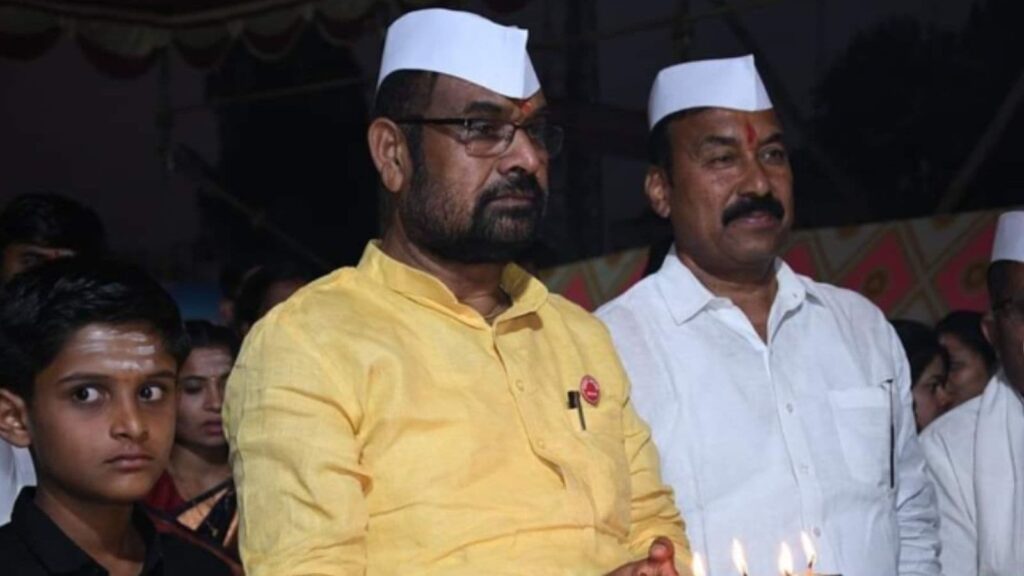BJP MLC Sadashiv Khot’s allegation on Monday of a cow vigilante “lobby” in Maharashtra “harassing” farmers has got flak from his own party, but it ties into his journey as a leader emerging from farmer groups.
Khot considers Maharashtra Chief Minister Devendra Fadnavis as his political guru but also emphasises that farmer leader Sharad Joshi is his agricultural guru.
“In the late 1990s, Joshi wrote about the need to repeal the Maharashtra Animal Preservation Act, 1976. This law, as per Joshi, was a threat to the farm economy and required amendments,” Khot said, articulating his position on the subject.
Joshi, Khot underlines, argued for farmers to have the authority to decide what to do with their animals.
For over a month now, traders and traditional butchers in Maharashtra have been on a strike in protest against “cow vigilantism”. The Maharashtra Qureshi Association, a body of the Muslim community that has traditionally worked as cattle traders and butchers, said they are unable to carry out their trade due to these vigilantes, with their animals often seized.
Deputy Chief Minister Ajit Pawar has also spoken on the matter and has directed police to take action against such vigilantism.
Khot has also been speaking of the protests by the Qureshi community since Day 1 and arguing that the stopping of butchering and cattle trade is hurting farmers and their interests.
From the ground up
Story continues below this ad
Khot, who belongs to Sangli district of Maharashtra, has been associated with agricultural issues, especially that of sugarcane farmers, for 30 years.
He joined hands with former MP Raju Shetti when he formed the Swabhimani Shetkari Sanghatana in the late 1990s. The organisation was formed to ensure a better price for sugarcane and carried out an agitation against the powerful sugar mills of Western Maharashtra.
Khot became a debutant MLC in 2016 with the support of the BJP and became Minister of State for Agriculture in Fadnavis’s first term as CM.
In 2018, Shetti decided to part ways with the BJP, but Khot stayed on with the party, and continued as a minister and an MLC. He later went to form the Rayat Kranti Sanghata, another farm outfit, but did not break his association with the BJP.
In 2024, Khot was re-elected as an MLC.
Story continues below this ad
Within the BJP, Khot’s opposition to the cow slaughter ban has been raising many eyebrows, with Fadnavis amending the 1976 Act in 2015 to ban the slaughter of animals of cow progeny (bulls, bullocks, ox, oxens).
Khot bases his argument on the economics of the milk trade. “A simple back-of-the-envelope calculation shows this. Animals require feed and fodder worth Rs 300 per day. Once they start yielding milk, the income from them is Rs 450 per day, if we consider production as 15 litres daily, with a base price of Rs 35 per litre,” Khot says.
Hence, if a farmer spends Rs 9,000 per month on an animal, he or she roughly makes Rs 13,500 from them in return. Their net profit: Rs 4,500.
The above expenditure, Khot says, is a “dead investment and would not yield any returns” if the animal is below two years of age, when it starts giving milk, or when it is older. The only way out, according to him, is selling the animals.
Story continues below this ad
“A farmer looks at an animal as a fixed deposit. When they sell these mature animals, they get a return on their investment and the very process of selling is now being threatened by the so-called cow vigilantes,” he says.
Khot claims that desi (indigenous) varieties of cows are never sold by farmers. “Such animals are always kept till their end as farmers consider them sacred. The trade is carried out in the milk-yielding or crossbred animals,” he says.
Asked about the opposition he is facing from the BJP for his stance against cow vigilantes, Khot says the criticism is coming from people who have never milked a cow.
Khot has also claimed that his supporters and him faced physical violence at a gaushala (cow shelter) in Pune, which led him to lodge a complaint on Monday.

